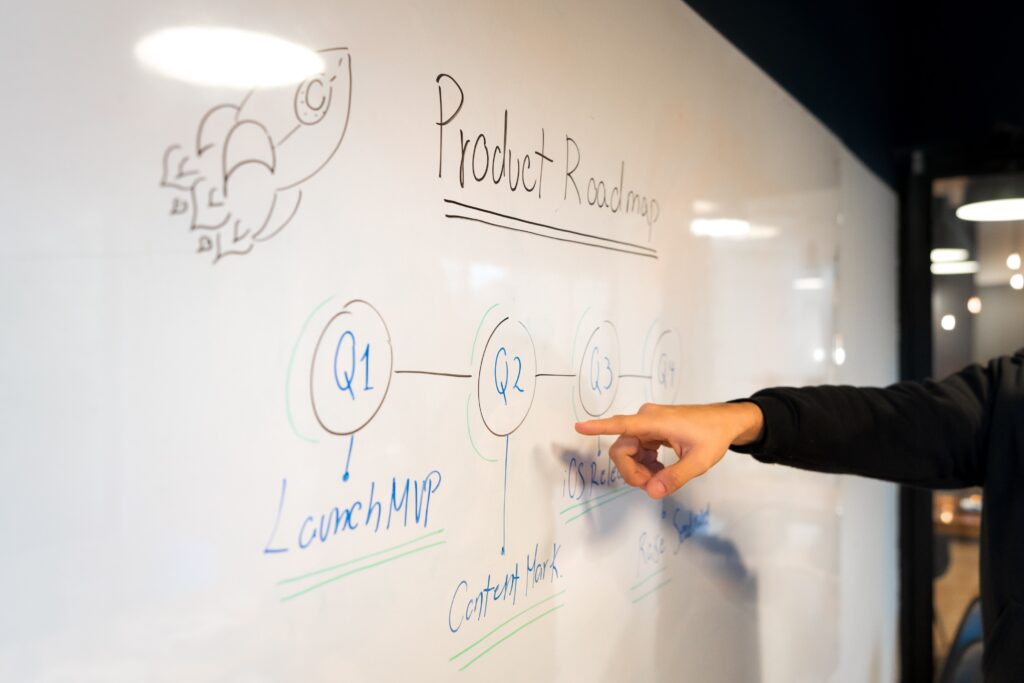Procrastination, we all know about it, we’ve all done it. But do you know the common characteristics that make a project so..procrastinatable? In my experience, there are two characteristics of a project that make it hard to start: No clear picture of the end goal and a murky understanding of the scope of the project. You can use clarity to end procrastination.
Where are you going?

Here’s a quote from Lewis Caroll’s Alice in Wonderland…
“Would you tell me, please, which way I ought to go from here?”
“That depends a good deal on where you want to get to,” said the Cat.
“I don’t much care where—” said Alice.
“Then it doesn’t matter which way you go,” said the Cat.
… that is adjacent to my point.
Indecision is the great halter of progress. It’s hard to move efficiently (let alone begin) if you don’t know what result you are striving for. So, what are you trying to achieve? Without a clear understanding of the destination, the matter of where to start leads to choice overload. Choice overload can be a huge component of procrastination. And though you can wander aimlessly and get somewhere, you might regret wasting your time if the goal you achieve is not truly what you wanted.
As an example, I want to speak Spanish fluently. At first glance this may seem like a clear goal, but once I started to learn, I realized that there are a lot of possible definitions for fluency. My experience with French is that fluency for business ≠ fluency for conversation ≠ fluency for watching tv. The fact is that there are different areas of fluency and not all of them even require that you can produce the language. I had a friend who taught himself how to read Russian literature and has no plans to ever speak the language.
Apply that same logic to any type of goal and you’ll realize that you need to be specific about what you, dear reader, want. Do you want to build a business that serves as your primary source of income or do you just want an additional stream of income? The strategy needed is different depending on your answer.
Clarity on your end goal helps to minimize procrastination. The next step is figuring out what needs to happen to get you there.
Determine the Scope.

Using the same example, I realized that true native fluency requires a mental database of 25,000 words (not even counting slang) and a depth of cultural understanding that would allow me to watch a Spanish language stand up comic and understand her reference to a children’s show from the 80s. Realistically, I’m not going to get there contextually and nobody needs that much vocabulary to be considered fluent. When that realization hit, I felt overwhelmed and didn’t know what vocabulary set to learn first.
Luckily, I don’t need native fluency to survive in a Spanish speaking country. Aha, but is my goal simply to survive? No, because all I need for survival are my spidey senses.
My goal with Spanish proficiency is to have a philosophical conversation fully in Spanish in a noisy bar/restaurant sort of late into the night. I can picture the scene in my head.
I’ll be the first to admit, that still isn’t 100% defined, but it is specific enough to give me a path to follow. Now I know that I can largely ignore business specific language. I’ll need approximately 7000 word vocabulary. I will need to read and understand enough philosophy that I could weave it into an argument in Spanish. I need cultural understanding of which philosophical arguments are commonly accepted or rejected in the country. I’ll have to choose a place and learn country-specific dialect. I could go on.
Now I have a better understanding through research and calculation of the scope of my project! PErsonally, all projects are scary, large, and amorphous until I sit down and write out exactly what is needed. Seeing an objective list gives form to the project and reduces procrastination. Once I know what all there is to do, it’s easier to pick a task and start.
Make a Plan

Now that you know your destination and the necessary pit stops along the way, you can make a roadmap for your journey. Clarity is my number one tool for combating procrastination. The main reason to procrastinate is generally because a project feels too big to take on or there are too many places to start. With specificity, you narrow your options and choice becomes much more manageable.
The place to start is by taking the time to define your goals and finding out what you need to take you there. This system works on all kinds of projects, not just learning. (But it is especially great for learning a new skill).
Click here to subscribe and get my best content right in your inbox!
Let’s Connect!
Instagram | Newsletter
